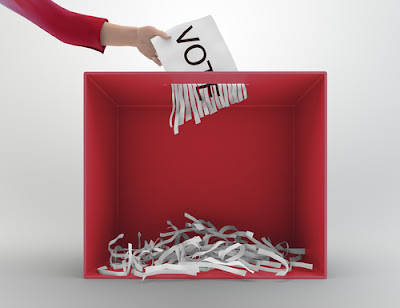what i'm reading: the bridge by bill konigsberg -- important, powerful, essential teen fiction
Unfortunately, I know that many readers won't go near this book, because of its subject matter: teen suicide. This would be a terrible missed opportunity. It's a great book that both teens and adults -- especially adults who have contact with teenagers -- should read. Yes, it's sad, but it's also hopeful, and it's powerful, and it's necessary.
Konigsberg, author of several excellent YA books, approaches the subject with a brilliant twist that makes the whole book work. Two teenagers stand on New York City's George Washington Bridge, feeling suicidal. They don't know each other; their presence on the bridge at the same moment is a coincidence, a quirk of fate, if you will.
The story unfolds four times. She jumps, he doesn't. He jumps, she doesn't. They both jump. Neither jumps. Each timeline explores the ripple effect of each choice.
Through this device, Konigsberg avoids many pitfalls that other books about teenage suicide have suffered from, accused of either glorifying suicide, or over-simplifying it, or blaming others, or making it situational, without examining mental health.
This is also just a really good book. The writing is brilliant, the characters are fully realized -- including the adults, which is rare for this genre. The sadness is leavened with humour and with hope. The story takes place in New York City, in a privileged world which, in reality, is not an easy world for children.
The book is also notable for what it's not. It's not glib or facile. There are no quick fixes. But there are pathways that may lead to better mental health. There are options.
I find it sad and frustrating that so many people will not read The Bridge. They'll say: "It's too sad." "I don't want to think about that." "I read for enjoyment, and that's not an enjoyable topic."
I've heard this about many books that explore painful and upsetting themes. It's a shame, because a book like The Bridge is an opportunity to understand others more deeply, to see people and their choices in a more nuanced way, even to think about how we can try to help.
I probably should have more empathy for people's reading choices, but... I don't. If you read this book, will parts be sad and painful? Obviously, yes. Will you cry? Probably. And what of it? You'll feel something. You won't melt. You won't break.
Millions of lives have been touched by suicide. Mine has been; yours probably has been, too. The ripple effect explored in The Bridge is happening all the time. For me, a book like this is a way to understand this better, perhaps to bear witness, from a respectful distance.
For some people, the topic of the book will be too close. It reflects their own reality, and they may not be in a place where they can absorb the story. I get that. But to people who insist that every read be sunny and cheerful, perhaps try moving outside your comfort zone. It's worth it.
* * * *
Reading The Bridge made me remember -- many times -- one of my favourite monologues from the series "The Blacklist", spoken (of course) by the character Raymond Reddington (James Spader).
Have you ever seen the aftermath of a suicide bombing? I have. June 29th, 2003. I was meeting two associates at the Marauch restaurant in Tel Aviv. As my car was pulling up, a 20 year-old Palestinian named Ghazi Safar detonated a vest wired with C4.The shock wave knocked me flat, blew out my eardrums. The smoke…it was like being underwater. I went inside. A nightmare. Blood, parts of people. You could tell where Safar was standing when the vest blew. It was like a perfect circle of death. There was almost nothing left of the people closest to him. 17 dead, 45 injured. Blown to pieces. The closer they were to the bomber, the more horrific the effect.
That's every suicide.
Every single one.
An act of terror perpetrated against everyone who's ever known you. Everyone who's ever loved you. The people closest to you are the ones who suffer the most pain, the most damage. Why would you do that? Why would you do that to the people who love you?


Comments
Post a Comment